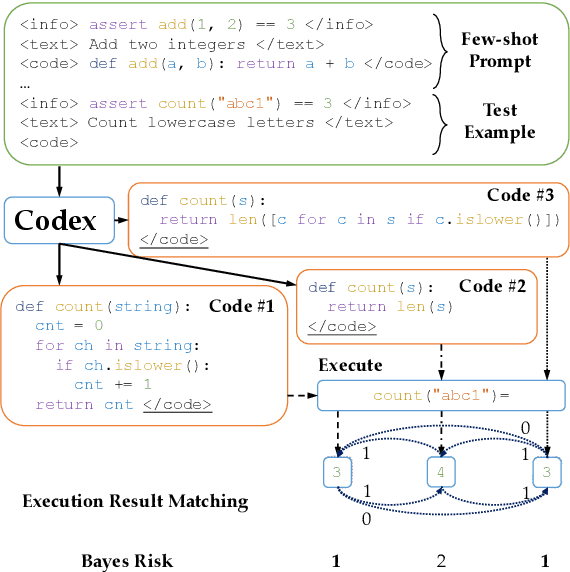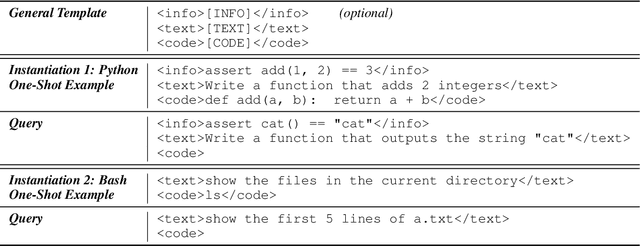Natural Language to Code Translation with Execution
Paper and Code
Apr 25, 2022



Generative models of code, pretrained on large corpora of programs, have shown great success in translating natural language to code (Chen et al., 2021; Austin et al., 2021; Li et al., 2022, inter alia). While these models do not explicitly incorporate program semantics (i.e., execution results) during training, they are able to generate correct solutions for many problems. However, choosing a single correct program from among a generated set for each problem remains challenging. In this work, we introduce execution result--based minimum Bayes risk decoding (MBR-EXEC) for program selection and show that it improves the few-shot performance of pretrained code models on natural-language-to-code tasks. We select output programs from a generated candidate set by marginalizing over program implementations that share the same semantics. Because exact equivalence is intractable, we execute each program on a small number of test inputs to approximate semantic equivalence. Across datasets, execution or simulated execution significantly outperforms the methods that do not involve program semantics. We find that MBR-EXEC consistently improves over all execution-unaware selection methods, suggesting it as an effective approach for natural language to code translation.
 Add to Chrome
Add to Chrome Add to Firefox
Add to Firefox Add to Edge
Add to Edge